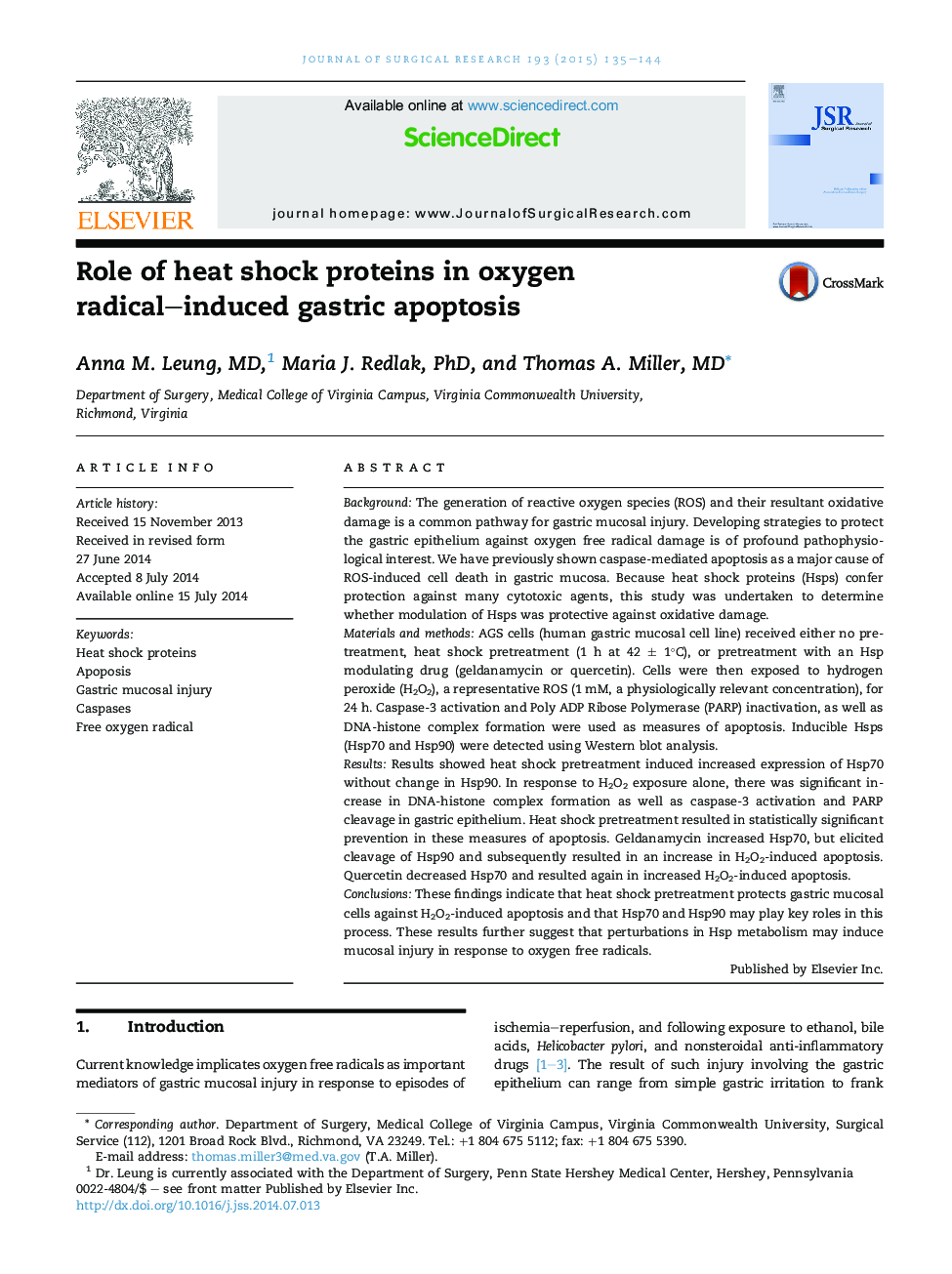| کد مقاله | کد نشریه | سال انتشار | مقاله انگلیسی | نسخه تمام متن |
|---|---|---|---|---|
| 6253688 | 1288407 | 2015 | 10 صفحه PDF | دانلود رایگان |
BackgroundThe generation of reactive oxygen species (ROS) and their resultant oxidative damage is a common pathway for gastric mucosal injury. Developing strategies to protect the gastric epithelium against oxygen free radical damage is of profound pathophysiological interest. We have previously shown caspase-mediated apoptosis as a major cause of ROS-induced cell death in gastric mucosa. Because heat shock proteins (Hsps) confer protection against many cytotoxic agents, this study was undertaken to determine whether modulation of Hsps was protective against oxidative damage.Materials and methodsAGS cells (human gastric mucosal cell line) received either no pretreatment, heat shock pretreatment (1 h at 42 ± 1°C), or pretreatment with an Hsp modulating drug (geldanamycin or quercetin). Cells were then exposed to hydrogen peroxide (H2O2), a representative ROS (1 mM, a physiologically relevant concentration), for 24 h. Caspase-3 activation and Poly ADP Ribose Polymerase (PARP) inactivation, as well as DNA-histone complex formation were used as measures of apoptosis. Inducible Hsps (Hsp70 and Hsp90) were detected using Western blot analysis.ResultsResults showed heat shock pretreatment induced increased expression of Hsp70 without change in Hsp90. In response to H2O2 exposure alone, there was significant increase in DNA-histone complex formation as well as caspase-3 activation and PARP cleavage in gastric epithelium. Heat shock pretreatment resulted in statistically significant prevention in these measures of apoptosis. Geldanamycin increased Hsp70, but elicited cleavage of Hsp90 and subsequently resulted in an increase in H2O2-induced apoptosis. Quercetin decreased Hsp70 and resulted again in increased H2O2-induced apoptosis.ConclusionsThese findings indicate that heat shock pretreatment protects gastric mucosal cells against H2O2-induced apoptosis and that Hsp70 and Hsp90 may play key roles in this process. These results further suggest that perturbations in Hsp metabolism may induce mucosal injury in response to oxygen free radicals.
Journal: Journal of Surgical Research - Volume 193, Issue 1, January 2015, Pages 135-144
